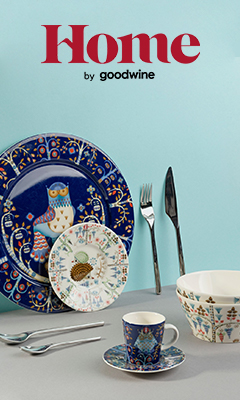Will vinegar damage coins?

What happens if you leave coins in vinegar
When copper oxidizes, it turns a blue-green color, forming a compound called malachite. In Bowl 2, the vinegar and salt create a chemical reaction. This reaction dissolves the copper oxide (the dirty looking spots) and some of the copper on the outside of the penny. The result is a shiny looking penny!
How do you clean coins without damaging them
Pour your coins into one bowl and fill with cold water until the money is well covered. In the other bowl, pour about 1 teaspoon of baking soda. Dip the toothbrush into the bowl of baking soda and scrub the coins. The baking soda should remove any dirt and grime and won't scratch the metal.
Cached
Can vinegar damage pennies
It turns out that vinegar is an acid, and the acid in the vinegar reacts with the salt to remove what chemists call copper oxide which was making your pennies dull. You're not done yet, though, lets try another experiment: Add more pennies to the bowl for 10 seconds, but this time , don't rinse them off.
CachedSimilar
Can you put a coin in vinegar
Coins become dirty due to oxygen in the air reacting with the copper metal. This forms a dark layer known as copper oxide. Over time, the oxide layer increases and makes the coins darker. Vinegar is an acid which can dissolve the unwanted oxide layer, leaving a shiny surface.
How long can coins sit in vinegar
A common ingredient in DIY eco-friendly cleaners, the acetic acid in white vinegar can help wear away the contamination on your coins. Soak your coins in a glass or other non-corrosive container for at least 30 minutes, up to overnight, and then wipe with a clean cloth or scrub gently with an old toothbrush.
What do professionals use to clean coins
Use distilled water, and rinse with distilled water. Acetone is another commonly used solvent, but there is a fire hazard that you should be aware of when using it as a coin cleaning material. Fingernail polish remover contains acetone, but it has other chemicals that may cause damage to upper grade coins.
Does hydrogen peroxide clean coins
You can use hydrogen peroxide to remove tarnish from copper, zinc, silver, or nickel coins. However, you should only use it in its diluted form, not the concentrated one. If a coin is severely tarnished, then you should use a toothbrush to scrub the stain away from the coin gently.
Can you leave pennies in vinegar too long
A good rinsing is needed to flush the acetic acid from the vinegar off the pennies. If left on the copper, this can lead to a buildup of a chemical called malachite, which will turn the pennies a bluish-green color.
Do coins lose value when cleaned
Before cleaning old coins, consider that appraisers and coin experts suggest not cleaning collectible coins yourself because the coins may lose their value. Using chemical cleaners or scrubbing the coins can leave behind scratches and marks, easily seen by a skilled coin appraiser.
Why do coin collectors not like cleaned coins
Most Cleaning is Destructive: It Can Literally Change the Surface of a Coin. Any cleaning that requires rubbing leaves microscopic scratches. They are not apparent to the naked eye, but a collector will see them. A collector will look for them.
What is the best thing to use to clean coins
If you want to go ahead and clean corrosion off of your old coins, baking soda likely is the safest route to follow. Wet the affected coin with clean tap or distilled water, roll in baking soda, then gently scrub with a soft toothbrush.
Why do pennies turn black in vinegar
As they are exposed to the environment, pennies become coated with a layer of copper oxide, making them look tarnished (with a dull, brown, dirty appearance). Copper oxide dissolves in a mixture of weak acid and table salt. Vinegar and lemon juice are both acids.
How do professionals clean coins
Distilled water is recommended as tap water contains chlorine. The coin is dipped into olive oil which according to Hudgeons, works best for common copper or bronze coins.
Should I clean my old coins before selling
Generally, it is better to leave your antique metal currency alone than it is to try and erase all the grime and grit off of those coins. Cleaning or polishing rare coins devalues them. So, if you're planning on selling them, get an appraisal before attempting to clean your coins.
How do you clean quarters dimes and nickels
Dip your coins in white distilled vinegar and let them soak for about 30 seconds. Take one coin out of the vinegar at a time and immediately sprinkle a pinch of baking soda on the surface. Rub the baking soda into the face of each coin with your fingers to scrub away the dirt and grime.
Is it OK to clean old coins
Cleaning old coins might seem like a good way to revitalise the appearance of a treasured item, but could in fact reduce a coin's value significantly, and should be avoided. Particularly in the case of old precious metal coins, cleaning them is most definitely not recommended!
Can you leave pennies in vinegar overnight
A common ingredient in DIY eco-friendly cleaners, the acetic acid in white vinegar can help wear away the contamination on your coins. Soak your coins in a glass or other non-corrosive container for at least 30 minutes, up to overnight, and then wipe with a clean cloth or scrub gently with an old toothbrush.
Why do coin collectors hate cleaned coins
Most Cleaning is Destructive: It Can Literally Change the Surface of a Coin. Any cleaning that requires rubbing leaves microscopic scratches. They are not apparent to the naked eye, but a collector will see them. A collector will look for them.
Why do coin collectors not clean coins
Most coin cleaning products are abrasive, and could damage the coin. Non-abrasive chemicals can still react with the other metals found in some old coins. The physical act of scrubbing or polishing can also wear down the design, destroying one of the most important factors in deciding a coin's grade.
Is it OK to clean valuable coins
It is best not to clean rare coins as removing the patina can significantly reduce the value of them. For this reason, most coin hobbyists almost never clean their coins. In fact, 99% of coins do not increase in value after you clean them, but many will be greatly devalued.
Should I clean my coins before selling them
Don't clean your coins! Not only does this cut their value by as much as half (or possibly even more), but it will be an immediate deal-breaker for many dealers who would've otherwise wanted to buy your coins if only they were left in their original condition.



0 Comments